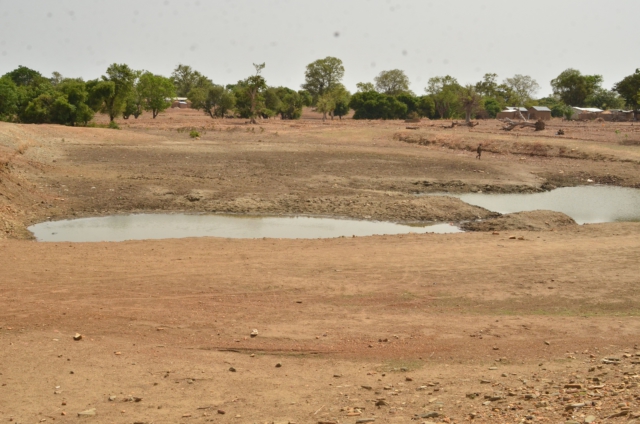
Audio By Carbonatix
Government has made no attempt to reconstruct or improve upon the quality of dams that were poorly constructed under the ‘One Village, One Dam’ [1V1D] initiative.
Neither has any budget allocations been made for further work to be done on the dams, most of which dried up during the dry season.
The Peasant Farmers Association of Ghana who recently went on a tour to inspect the dams in the Upper East Region, says that farmers could not use the dams for any other purposes, except serving as source of drinking water for animals.
The NPP government introduced the ‘One Village, One Dam’ Initiative to construct dams in some villages in northern Ghana to support the farmers to do dry season farming.
However, when they were eventually constructed, the dams did not meet the expectations of Ghanaians as they were poorly constructed.
The Peasant Farmers Association of Ghana conducted research last year and found that the dams could not support dry season farming as initially intended by government.
Though government promised to get contractors back to site to improve on the dams, JoyNews correspondent, Albert Sore who was on the tour with PFAG reports that the situation remains the same, one year on.
Kabre community dam
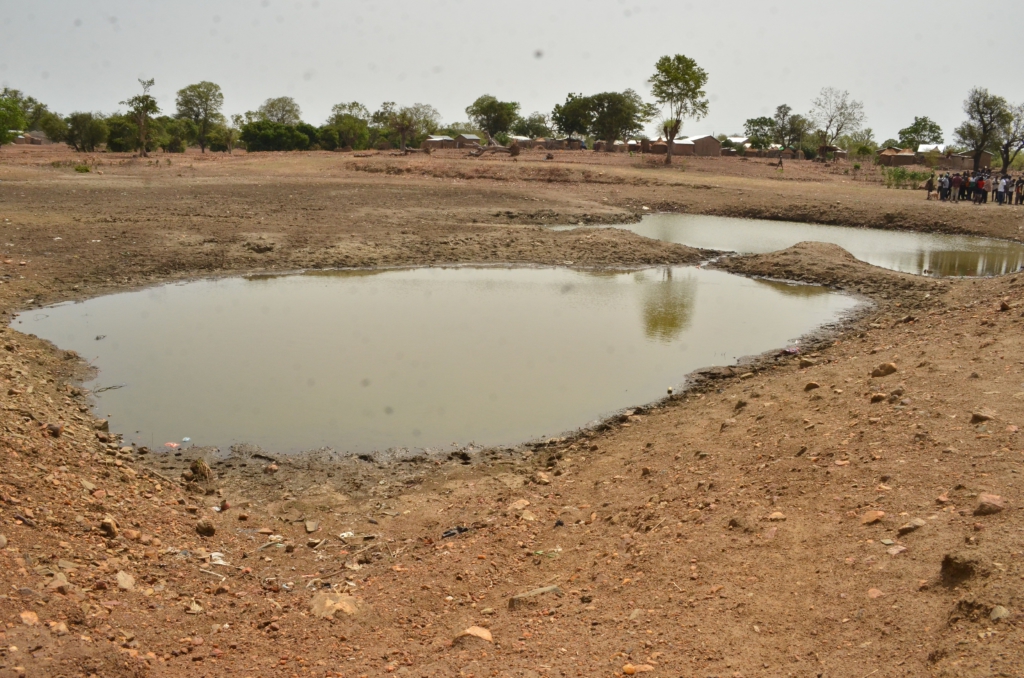
The tour started from the Kabre community in the Bongo district on May 10, 2021.
A visit to the dam constructed in this community as part of the 1V1D initiative, revealed that with the exception of a small pool of water that was in a deeply – excavated portion of the dam’s reservoir, the rest of the dam [almost the size of two soccer fields] was dry.
The community members stood in the portion that used to be the middle of the dam when it had water in it. And there, they interacted with the team from the Peasant Farmers Association of Ghana.
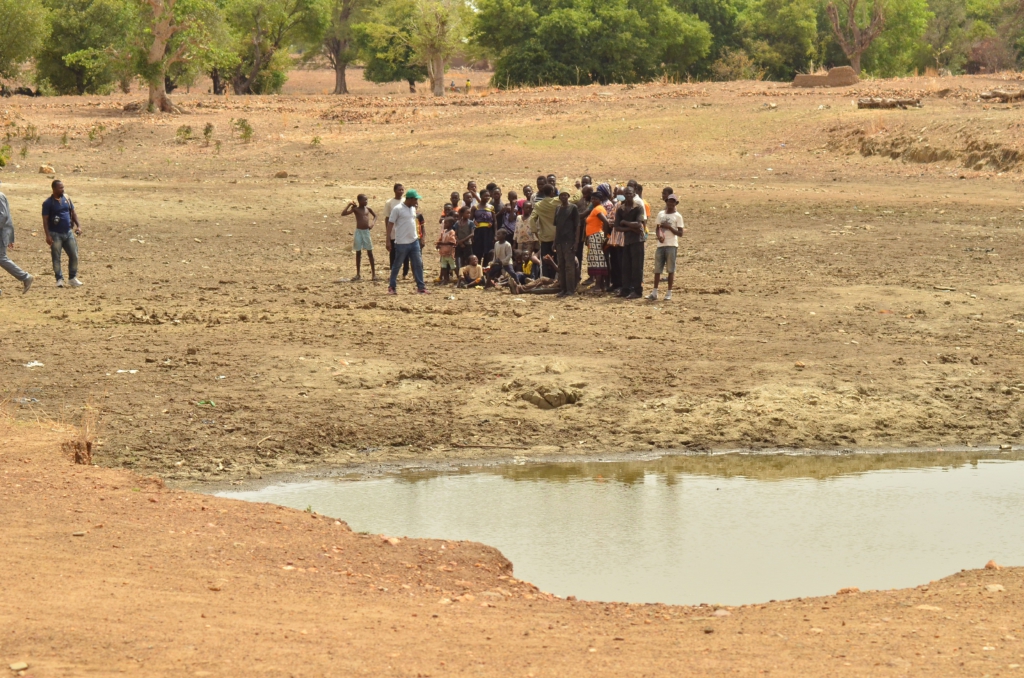
According to the people of Kabre, the quantity of that water only increased because it had rained 3 days before the team from PFAG visited.
Jacob Mba Appiah, a member of the Kabre community, said, “I can’t confidently say that water dried up completely [in the dry season], but it was not also as you see it today. The recent rains added up [water]”.
He said the community had enacted a law that barred people from fetching water from the dam during the latter part of the dry season so that instead, their animals could have water to drink.
Joy News first visited the Kabre dam independently, in June 2019.
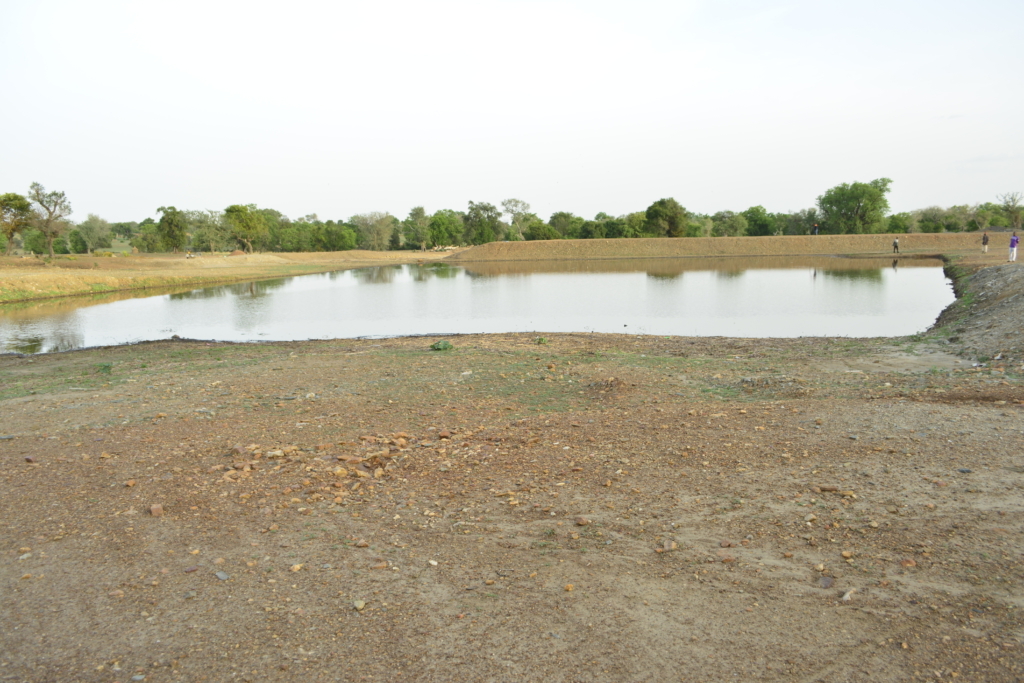
At the time, there had been many rains and the dam was filled and looked well–constructed but even then, the people had complained that they felt a better job could have been done with the construction.
Two years on, nothing has been done to improve on the quality of the dam and the challenges persist.
Thomas Adongo, a native of Kabre said the community members have been left disappointed after their expectations were heightened during the construction of the dam.
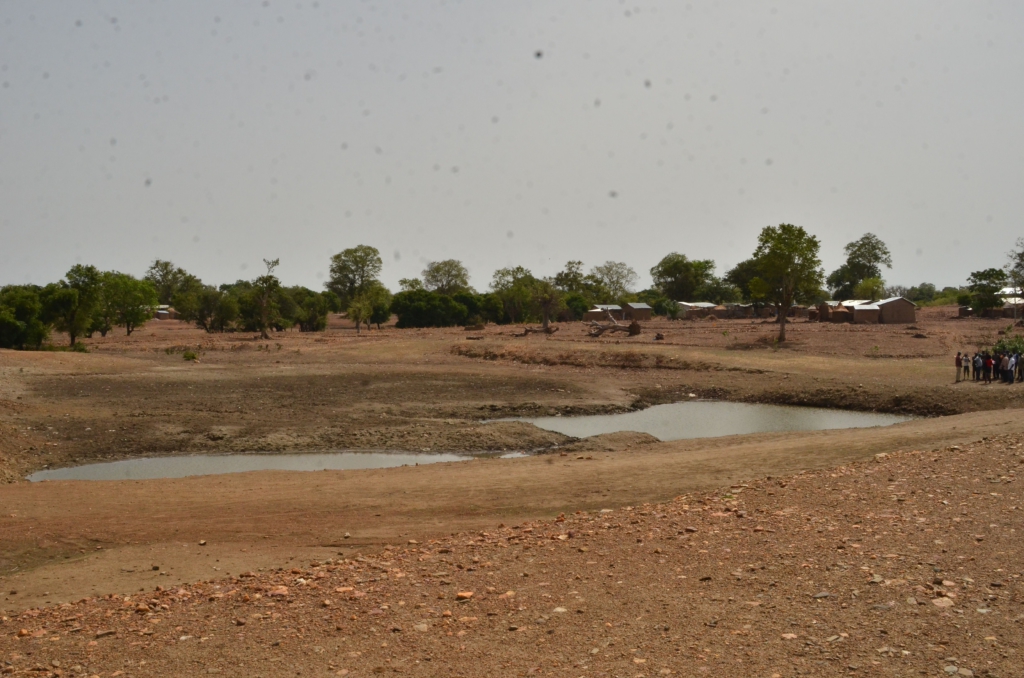
“People were jubilating; thinking that after the construction of this dam, they will no longer go down south to look for jobs because maybe, they will get some small jobs to do – like farming”, Adongo said.
“But unfortunately, they have not been able to make it [the dam] the way the people expected”, he added.
Jacob Mba Appiah, also told Joy News; “At least the dam is serving one purpose – for the livestock [to drink]. We cannot get water for construction and we cannot get water for farming which we expected the dam to [be able] do”.
The people of Kabre were still hopeful that government will get the contractors to come back and improve on the quality of their dam.
Ayopia community dam
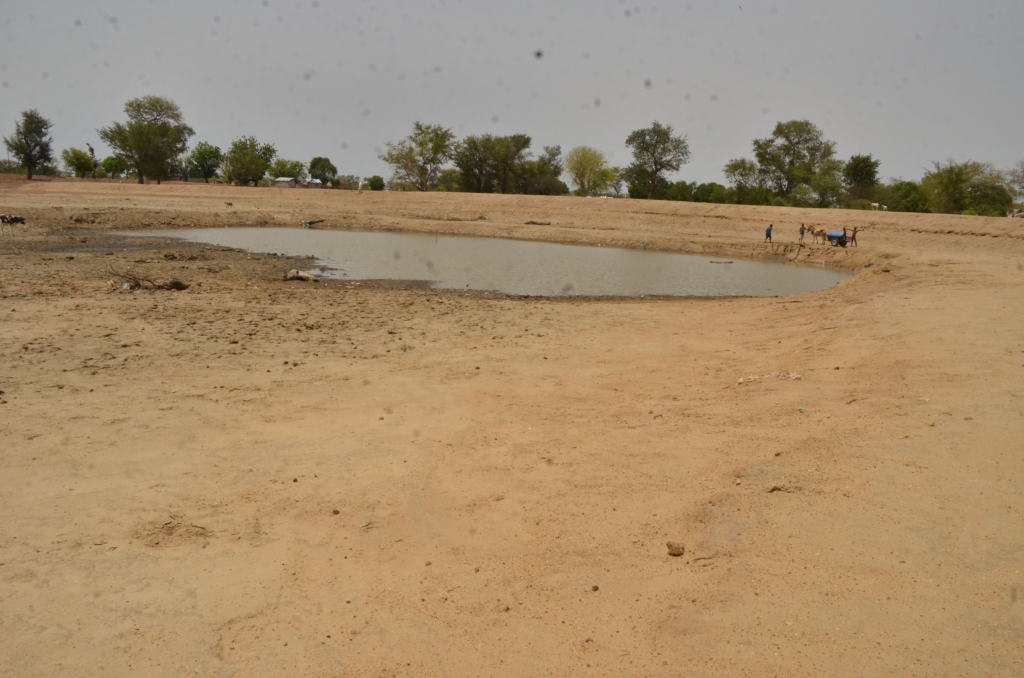
Next, the tour took the team to the Ayopia community, still in the Bongo district.
The sod cutting for the construction of this dam was done by President Nana Akuffo – Addo himself, in the year 2018, to kick start the ‘One Village, One Dam” initiative.
JoyNews visited Ayopia independently in June, 2019 and found the dam had water in it and seemed in a good condition, generally.
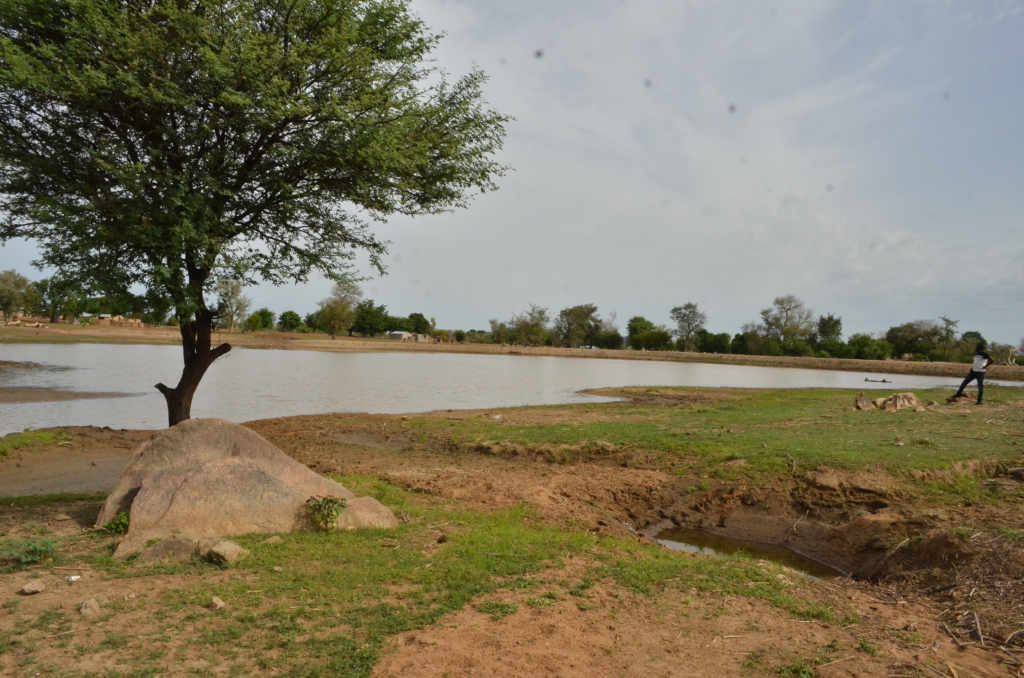
Again, at the time, the residents of Ayopia complained that the dam was too small and shallow and therefore, they did not think it could store enough water to support dry season gardening.
Now in 2021, nothing had changed as at May 10, when members of the Peasant Farmers Association visited.
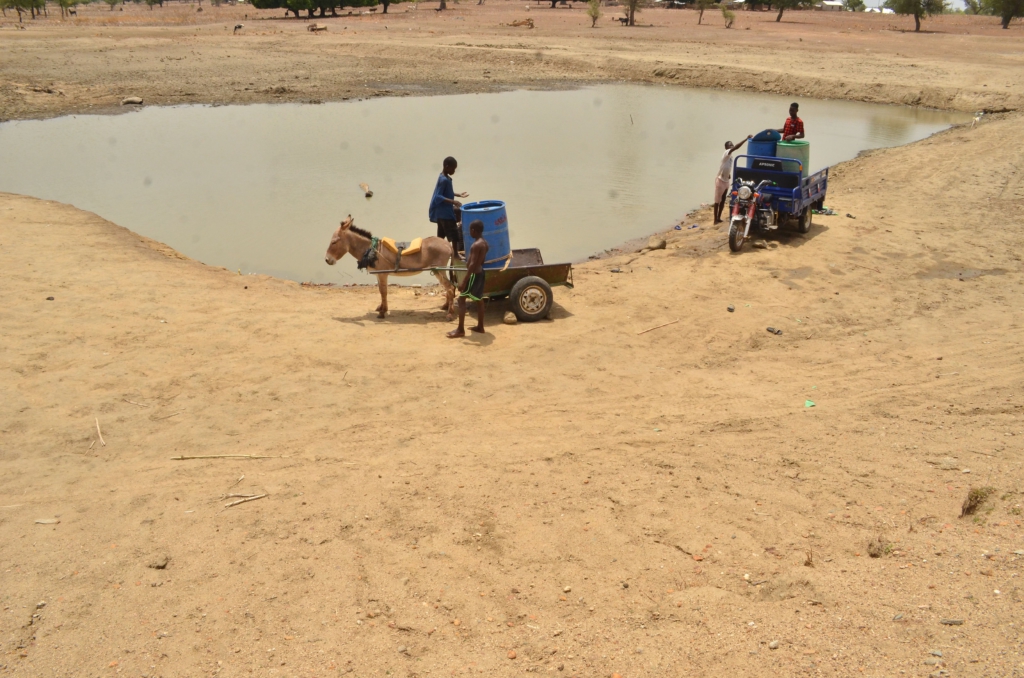
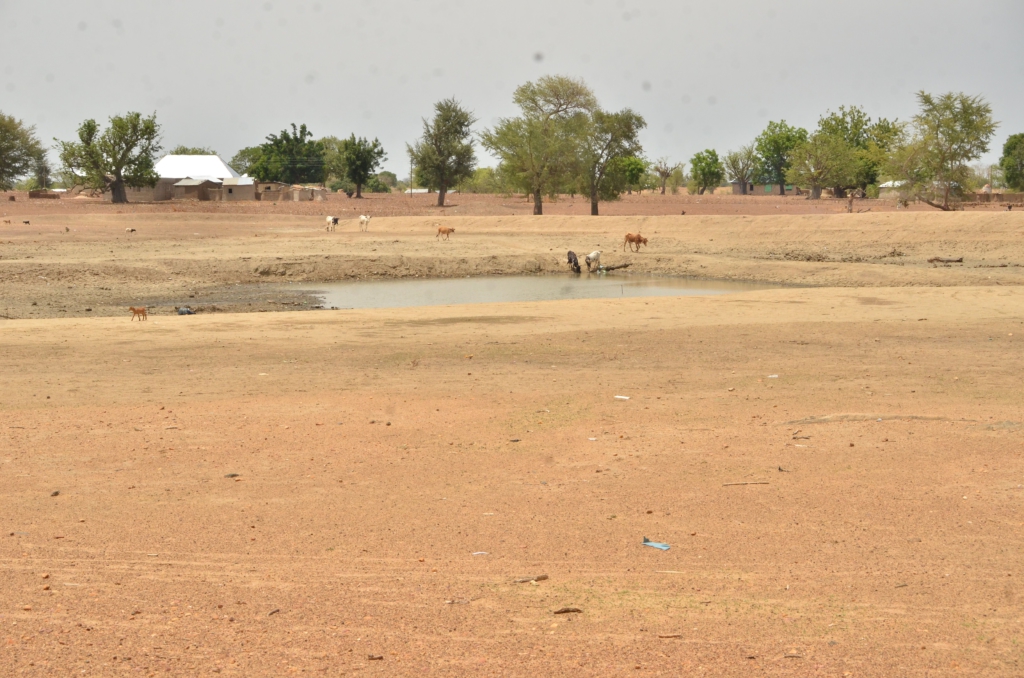
The size of the dam had not been increased, neither had its depth or any other part been improved upon.
We found community members including young children who had come to fetch water from the dam with donkey carts and tricycles.
They told us; they were fetching the water for construction purposes.
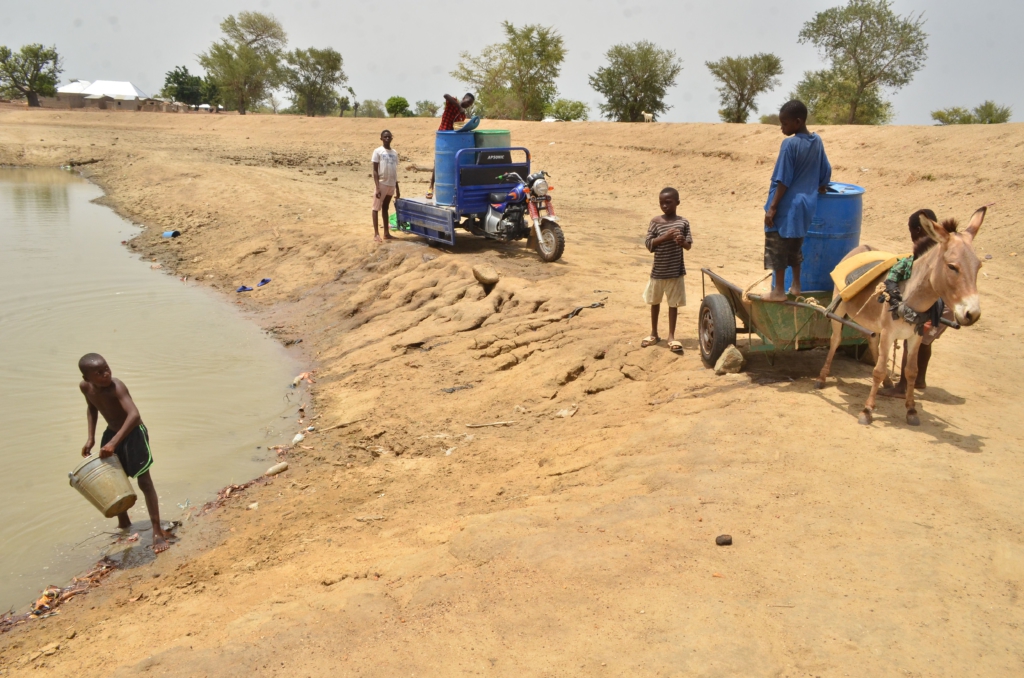
Also, animals were coming here to drink but there was no gardening whatsoever going on.
Ayamga Bangya, a woman from the Ayopia community we met at the dam told us; “The dam is serving a purpose. Our animals drink here and we come to fetch water for domestic use.
"The challenge is that they have not returned to finish the work on the dam; the spillway is too large, so when it rains, most of the water in the dam flows out.”
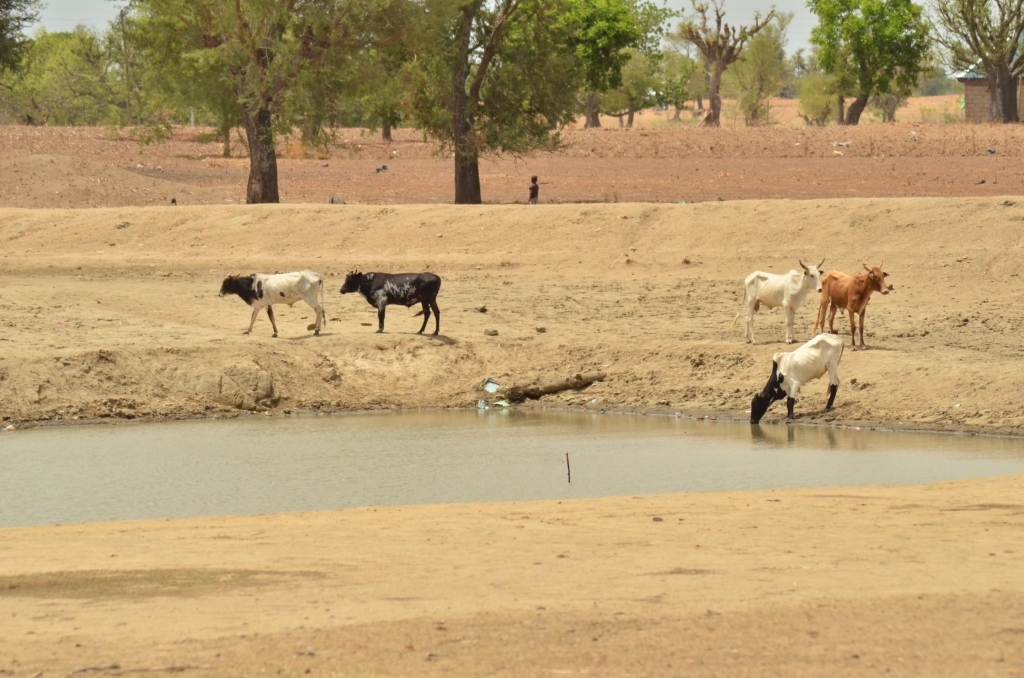
Rev. John Akaribo, a farmer and member of the Peasant Farmers Association of Ghana who is based here in the Bongo district also told us that the people in the area were hoping that in addition to other uses, they would be able to do dry season farming with water from the dam but that has not been the case.
“As we speak right now, this dam; had it not been for the rains we had three days ago, the water in the dam reservoir would have been very small”, Rev. Akaribo said.
Kazigu community dam
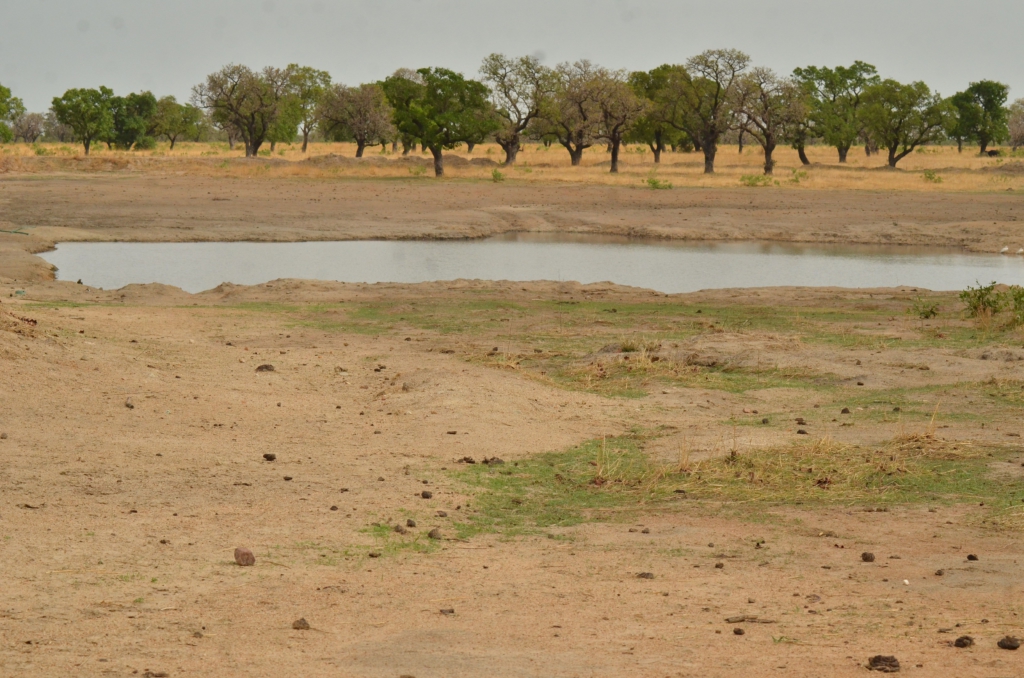
In the Kansena – Nakana West district, the team from the Peasant Farmers Association of Ghana visited the Kazigu and Kajelo communities to inspect the dams constructed under the 1V1D initiative.
Again, the community members complained that no improvements had been made on the dams since they were first constructed.
At Kazigu, the dam there had some reasonable quantity of water but the residents said it was also as a result of the rains few days before our visit.
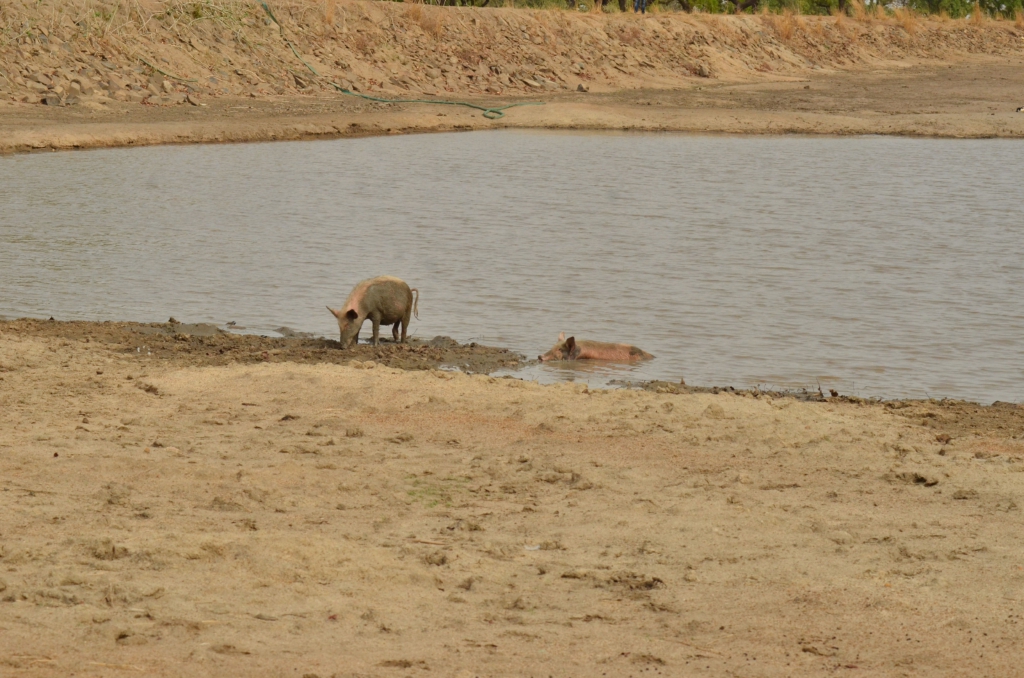
Achaari Neneje, a farmer at Kazigu, said his shea trees were cleared to pave way for the construction of the dam, and while he was not bothered at the time, he now feels disappointed after the dam failed to meet their expectations.
Ransford Kwochiga, a youth at Kazigu, also said he had travelled back home from Accra, where he sought greener pastures, because he was told he could make gardens in the dry season, but he was disappointed.
“In the dry season, before I realized, there was no water for us to do the gardens again, so I went back to Accra. I only came back [home] recently”, a distraught Kwochiga said.
Kajelo community dam
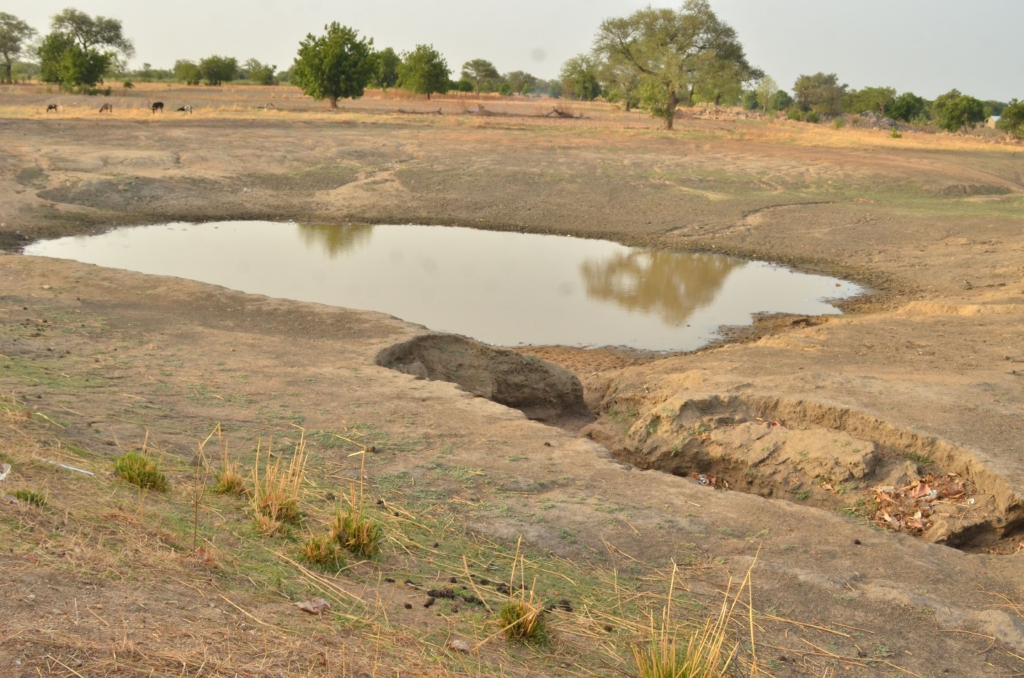
The Kajelo dam in particular was in the limelight during the early stages of controversy regarding the ‘One Village, One Dam’ initiative.
Shortly after its construction, the embankment of the Kajelo dam collapsed following the first rain in April, 2019.
JoyNews visited at the time and told the story.
The embankment was later repaired.
We visited again in January, 2020 to find that some farmers in the Kajelo community had made gardens with water from the dam but eventually had to abandon some of their vegetables because the water in the dam had run out.
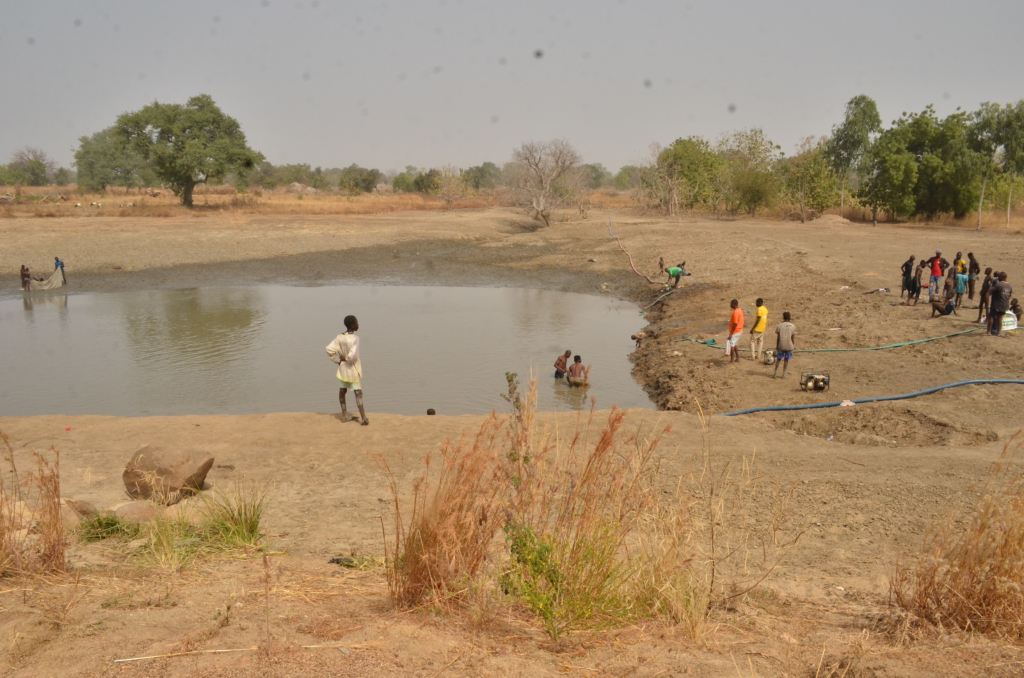
Fast-forward to the month of May 2021, nothing had been done to improve upon the situation.
Anthony Wepu, a farmer in Kajelo said the dam dried up completely by December, last year.
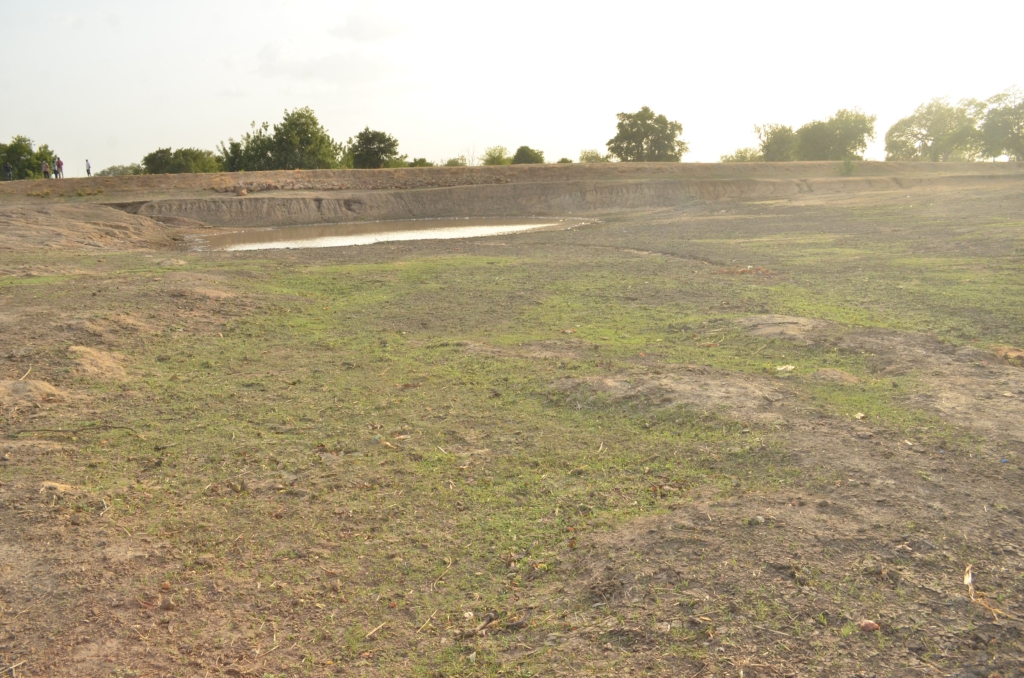
“We use rainwater from July to September [for farming]. Then from October to part of November, we use the dam water, and it will finish around the end of November,” Wepu told Joy News.
“The dam dried up completely. It is the recent rains that gave us this water. If you come here by the end of December, you will not get a drop of water”, he added.
What more?
JoyNews independent checks in other parts of the Upper East Region, including the Gono and Dachio communities in the Bolgatanga East district, show that government has done no further work to improve upon the dams constructed there under the 1V1D initiative.
The Peasant Farmers Association of Ghana say they feel that government is gradually abandoning the projects – a situation they describe as unfortunate.
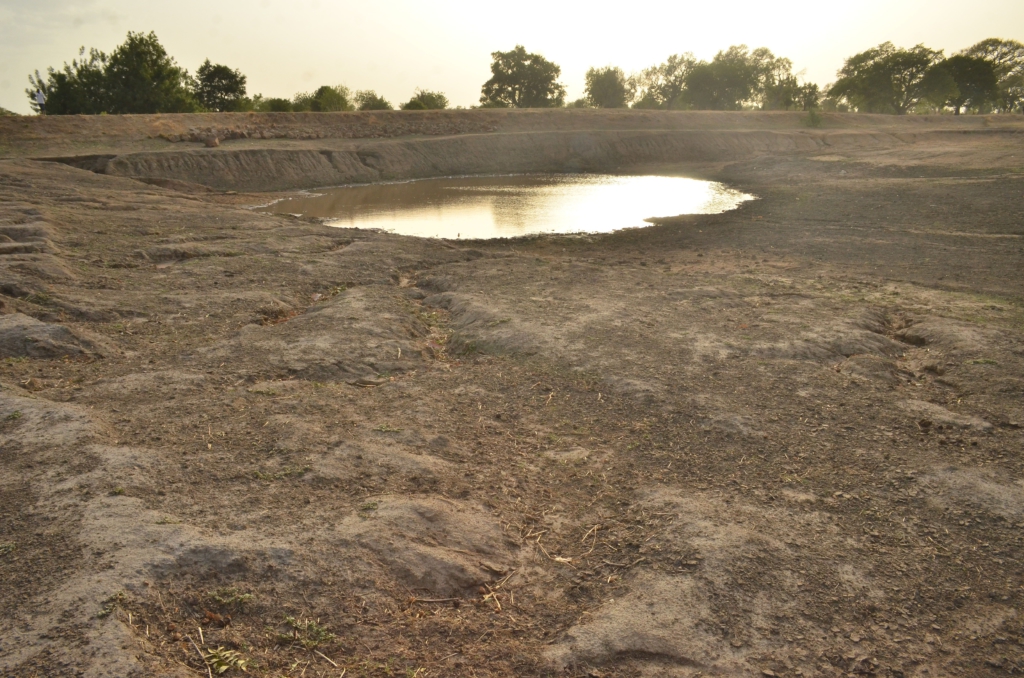
Head of Programmes and Advocacy for the Association, Dr Charles Nyaaba, says they had also visited dams constructed under the initiative in the Upper West, North – East, Northern and Savannah regions and found that “they all had the same characteristics”.
“Speaking to most of the beneficiary communities, they told us that they had to stop everybody from using the water to farm so that their animals will be drinking, because if they want to use it to farm, the water cannot last for more than one month,” Dr Nyaaba said.
He added, “Our concern as Peasant Farmers Association of Ghana is that government promised to continue construction of these dams, but after we did the budget analysis for 2021, we realized that there is no allocation for the reconstruction of the dams, and this is very worrying.”
President of the Peasant Farmers Association of Ghana, Abdul – Rahman Mohammed wants government to show commitment to the 1V1D projects.
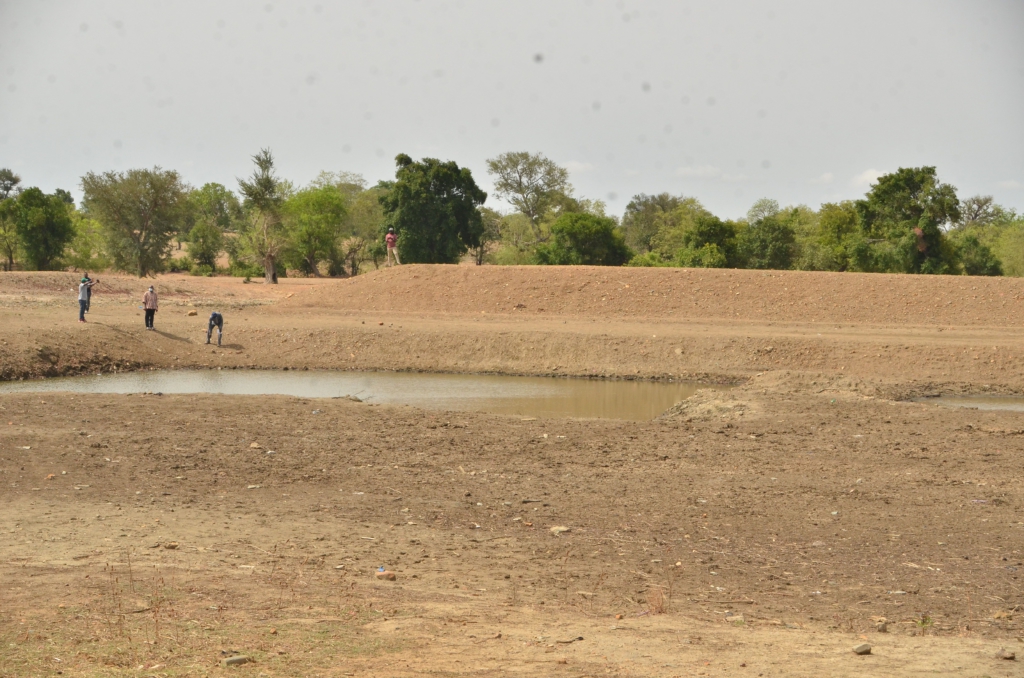
“There is no dam we have visited and they were doing farming activities there. So we will still appeal to the government to come back and complete the dams”, he said.
He stressed that the PFAG was only interested in the welfare of farmers and that they “have nothing to do with politics”.
For now, the dams constructed under the ‘One Village, One Dam’ initiative here in the Upper East Region are far from serving the purpose of dry season gardening.
Latest Stories
-
President’s New Year message lacked hope and sincerity – NPP’s Senyo Amekplenu
26 minutes -
Ebo Noah remanded pending psychiatric exam, to reappear on January 15
47 minutes -
Our public university system is falling down
50 minutes -
Ho Central Mosque under heavy security, worshippers forced to pray outdoors
1 hour -
An open letter to H.E. John Dramani Mahama: The audacity of the third shift
2 hours -
A new era of healthcare dawns in Kintampo: Mary Queen of Love Medical Hospital opens its doors
2 hours -
NDC gov’t has demonstrated strong fiscal discipline – Abdulai Alhassan
3 hours -
Heavily armed Burkinabè soldiers arrested in Ghana
3 hours -
Tamale Chief commends IGP Special Operations Team for crime reduction efforts
3 hours -
None of NPP’s 5 flagbearer aspirants is credible – Abdulai Alhassan
4 hours -
Police arrest suspect for unlawful possession and attempted sale of firearm
5 hours -
3 arrested in connection with Tema robberies
5 hours -
Your mouth on weed is nothing to smile about
5 hours -
25% university fees hike, what was the plan all along? — Kristy Sakyi queries
7 hours -
Some OMCs reduce fuel prices; petrol going for GH¢10.86, diesel GH¢11.96
7 hours

